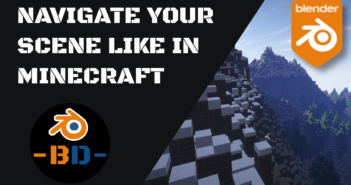Starting Blender 2.93 LTS which is slated for release in a couple of days, Blender has become fully compliment with the highest standards required by third parties to redistribute it.
Sharing is caring. As part of the ongoing effort to professionalize infrastructure, Blender is now fully compliant with the highest standards required by third parties to redistribute the software and the Open Source libraries bundled with it. https://t.co/DTeVPDPzqn #b3d #FOSS
— Blender ? (@Blender) May 26, 2021
While Blender is part and parcel of Open Source Software and a beacon of openness in the digital wilderness, this latest effort to professionalize infrastructure and properly deal with the multiple external libraries Blender relies on has started in May 2020. The outcome of this year-long endeavour is the packaging and self-hosting of third-party libraries. Check out Dalai Felinto's blog post on the Blender Developers Blog for a more in-depth at the challenges faced and the thought process behind solving them:





5 Comments
Since May 2000?
Sorry for the typo, fixed it!
"As part of the ongoing effort to professionalize infrastructure, Blender is now fully compliant with the highest standards required by third parties to redistribute it." sounds like public relations speak.
What does it mean?
No, this is actually important.
It means that for Blender to be a serious option for professional studios, those studios need to be sure that neither Blender nor they themselves can be sued because Blender violated the license of a certain third party open source software it uses.
Using Open Source software comes with certain obligations that close source software doesn't have that may seem strange, like meaningfully making the source code available. Different open source software use different open source licenses with sometimes subtly different requirements. I think the article pointed out that some require to make the source code available upon request, while some require that it should already be readily available without even a request.
I interpret all this to mean that Blender has gone through the same process of de-tangling all these licenses requirements and put a system in place to ensure that Blender is compliant with all of them. This is a sign of the maturation of Blender as a project and the Linux Kernel went through the same process many years ago.
This is a good thing; It is interesting to me because I've seen many, many parallels between Blender's development now and Linux's say 15-20 years ago, and we should all hope that Blender is as successful.
Thanks for clearing that up. If BF had tweeted a few sentences from your post that would have explained it better.